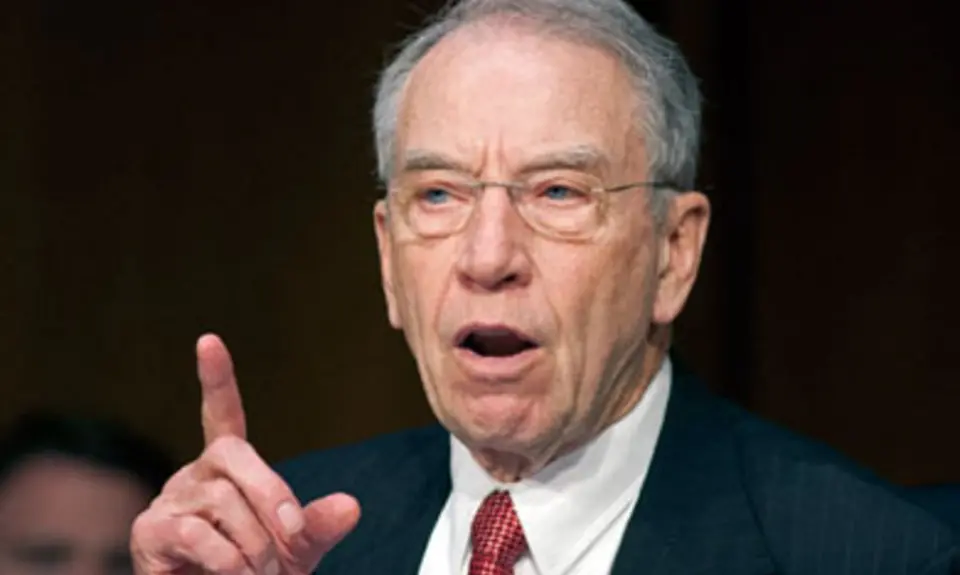Judiciary Committee Chairman Chuck Grassley scheduled a committee vote on five judicial nominees for this morning. Four of them had their hearings just two weeks ago. It is hardly the norm for Grassley to hold committee votes for Obama judicial nominees so quickly.
So what’s so special about these four? Well, actually, it’s just two of them that are the cause of this departure from Grassley’s pattern of obstruction: Leonard Strand and Rebecca Ebinger are from his home state of Iowa, and Grassley is the one who recommended them to the White House.
Ebinger was leapfrogged over ten other nominees so Grassley could include her in the committee hearing two weeks ago. In fact, Grassley and fellow Iowa senator Joni Ernst turned in their blue slips approving her nomination before her paperwork was even submitted to the Judiciary Committee. How’s that for effectiveness?
Fortune is shining down on two other nominees, as well. Gary Brown (Eastern District of New York) and Mark Young (Central District of California) had the good fortune to share a hearing day with the Iowa nominees, and they were also scheduled for a committee vote today, just two weeks later.
But it wasn’t only the scheduling of the committee vote that was unusual: the fact that Republicans didn’t delay the vote by at least a week was equally out of the ordinary for them. Once Obama became president, Republicans began to exercise the right of the minority party to have a committee vote “held over” (delayed) by at least a week without cause in all but a handful of exceptions, an unprecedented abuse of the rules. They have continued this practice as the majority party, even though they are the ones scheduling the initial votes in the first place.
As we said when we first wrote about this particular tool of obstruction in 2011:
Voting on a federal judicial nomination is an extremely serious responsibility and one that requires diligent research and thought. So if senators sincerely have questions that have not been answered, or genuine and substantial concerns about a nominee's fitness for the bench, then no one should begrudge them an extra few days to gather additional information.
But when Republicans exercise this option for every nominee, even those who are strongly supported by their home state Republican senators and have no opposition whatsoever, then their sincerity must be called into question.
But today, although it was the first time on the agenda for Strand and Ebinger (the two Iowa nominees) and for Brown and Young (the New York and California nominees), Chairman Grassley made sure they all got a timely vote rather than holding them over.
That was the right thing to do. Would that it weren’t so rare.
As today’s committee meeting shows, it really isn’t hard to treat judicial nominees fairly, giving them full but timely consideration. You shouldn’t have to be Chuck Grassley’s hand-picked judges (or be lucky enough to share a hearing with them) to get that fair treatment.
